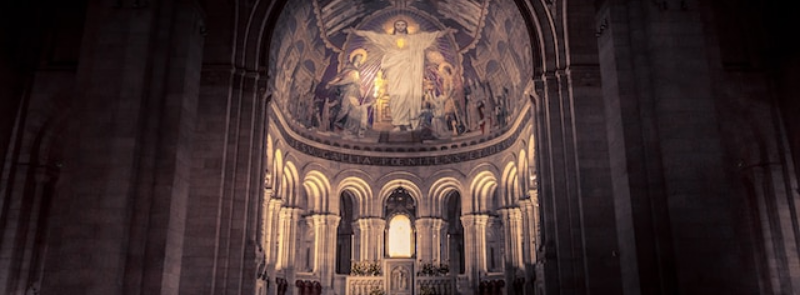
When It Occurs
Annually Final Night of Twelve Days of Christmas
Timeline
Days Passed (1144)
# Hashtags
#TwelfthNight #EpiphanyEve
Twelfth Night, also referred to as Epiphany Eve, is a Christian festival observed on the final night of the Twelve Days of Christmas, symbolizing the arrival of the Epiphany. Various traditions designate the date of Twelfth Night as either January 5th or January 6th, depending on whether the counting commences on Christmas Day or December 26th.
Historical and Religious Significance
-
Christian Context: In Christian tradition, Twelfth Night marks the conclusion of the Christmas season. It signals the eve of the Feast of the Epiphany, the day when the Magi arrived in Bethlehem bearing gifts for the newborn Christ. In Western Christianity, January 6th (the Epiphany) celebrates this event, emphasizing Christ’s revelation to the Gentiles, symbolized by the Magi.
-
Counting the Twelve Days: The twelve days of Christmas begin on Christmas Day (December 25th) and continue through to Twelfth Night. The tradition of the Twelve Days dates back to medieval times, when these days were viewed as a single, extended holiday. Twelfth Night is the culmination of this festive period, a day of feasting, revelry, and the exchange of gifts in many cultures.
Traditions and Customs
Twelfth Night has been celebrated in a variety of ways across the UK, mixing religious observance with merry customs, many of which have pagan roots:
-
Taking Down Christmas Decorations: In the UK, it is customary to take down Christmas decorations, such as the Christmas tree and wreaths, by the end of Twelfth Night (January 5th or 6th). Many believe that leaving decorations up beyond this time is bad luck. This practice is based on old superstitions, and taking them down is seen as marking the official close of the holiday season.
-
Twelfth Night Cake: Historically, Twelfth Night parties included the sharing of a special Twelfth Night cake, which was often a rich fruitcake or spiced bread. The cake would have a hidden bean or pea baked inside, and the person who found it in their slice would be crowned the "King" or "Queen" of the Feast for the night, presiding over the evening's revelry. This tradition is echoed in the King Cake customs of other European countries.
-
Mumming and Wassailing:
- Mumming: In medieval times, mumming plays—where actors performed humorous folk tales in masks or disguises—were common on Twelfth Night. These plays were part of the wider tradition of misrule, where social hierarchies were temporarily reversed, and the lower classes could playfully mock the upper classes.
- Wassailing: Wassailing, a custom involving the drinking of spiced ale or cider, singing carols, and wishing health to the trees in apple orchards, was also traditionally part of Twelfth Night celebrations. In parts of England, wassailers would visit homes and orchards to sing songs and toast to the health of the household and the coming year's harvest.
-
Twelfth Night Plays: One of the most famous literary associations with Twelfth Night is William Shakespeare's play "Twelfth Night", written around 1601-1602. It is a comedy full of mistaken identities, gender confusion, and festive revelry, reflecting the spirit of the holiday, with its themes of topsy-turviness and misrule.
-
King of the Bean: In some traditions, a "King of the Bean" would be chosen during the Twelfth Night feast, based on who found a bean hidden in their cake. This custom echoes ancient Roman festivals such as Saturnalia, where a "king" was similarly chosen.
-
Bonfires: In some parts of England, especially in rural areas, bonfires would be lit on Twelfth Night to mark the end of the holiday season. These bonfires would symbolize the purification of the land and preparation for the coming planting season.
The Decline of Twelfth Night Celebrations
While Twelfth Night was once a widely observed holiday in the UK, its significance has faded somewhat in modern times. During the Victorian era, much of the focus of Christmas shifted to Christmas Day and New Year’s Day, leading to a decline in Twelfth Night festivities. The tradition of taking down decorations by Twelfth Night remains strong, but other customs, like Twelfth Night feasting and crowning a "King" or "Queen" for the night, are now less commonly observed.
However, in some communities and historical reenactments, Twelfth Night parties and rituals are still celebrated as a way to revive old English traditions.
Epiphany and the Connection to Twelfth Night
Twelfth Night is closely tied to Epiphany on January 6th, which is still widely celebrated in the UK and across Europe. In the UK, the day is marked with special church services, where the visit of the Magi is remembered, and in some parts of the country, local Epiphany festivals are held. In Spain, Italy, and parts of France, January 6th is a public holiday, and in many cultures, it’s customary to exchange gifts on Epiphany rather than on Christmas Day.
Conclusion
Twelfth Night, though less prominent in contemporary British culture, remains a symbol of the end of the Christmas season and a connection to ancient traditions of celebration and merrymaking. The day is an opportunity to reflect on the religious significance of Christmas and Epiphany, as well as a moment to enjoy the last festive gatherings before returning to everyday life. It’s also a reminder of how deep-rooted and multifaceted British holiday customs are, blending Christian, pagan, and folk traditions over centuries.


